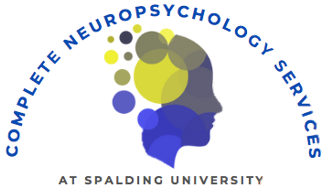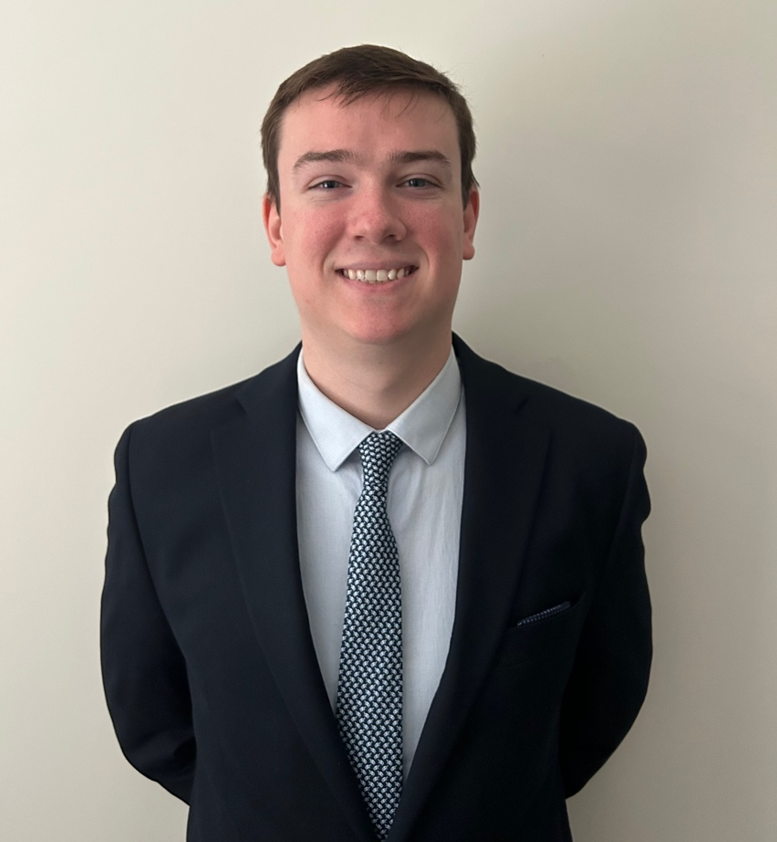
Neuropsychological Services
Why CNS at Spalding University?
The Complete Neuropsychology Services training clinic within the Center for Behavioral Health at Spalding University is the premier site for neuropsychological testing conveniently located in downtown Louisville. Our directors have a wealth of experience and knowledge in clinical neuropsychology. In addition, the CNS provides supervised training for doctoral level clinical psychology students. Here you will find compassionate clinicians from a wide range of backgrounds who will listen to you and your concerns.
What is a neuropsychological evaluation and its purpose?
A neuropsychological evaluation is a comprehensive set of assessments carried out by a neuropsychologist that tests a wide range of cognitive and mental functions. A neuropsychologist is a clinical psychologist that has received specialty training in neuroanatomy and brain-behavior relationships. Neuropsychological evaluations serve many functions, such as helping with diagnosis and treatment planning, assessing cognitive ability, or establishing a baseline after neurological injury.
What does a neuropsychological evaluation entail?
A clinical interview with a clinician and a set of tests. The interview usually takes around an hour and questions are asked to understand and evaluate your current level of emotional, cognitive, and behavioral functioning. Family members are interviewed too as part of the evaluation. Neuropsychologists use specialized tests that measure a number of mental abilities. They are standardized meaning that they are given and scored in a similar manner to everyone. These results are compared to individuals who have similar demographics to you. Tests are non-invasive, often working on pencil and paper or computer administered, face to face with a clinician. Evaluations include:
-
- Clinical Interview (client and/or caregiver)
- Neuropsychological Testing
- Report Writing
- Feedback
How long does a neuropsychological evaluation take to complete?
The exact duration of the test depends on the number of assessments given as decided by your clinician and is based on the referral question, the presenting concerns, and medical history. You will be free to take breaks in between assessments as needed. You can generally expect to spend 4 – 6 hours for the complete evaluation.
How do I know if I need a neuropsychological evaluation?
Most likely you were referred for an evaluation by your physician, therapist, case manager, or agency. Common reasons for this include assessing memory problems, confusion, difficulty recognizing things, difficulties in decision making, or changes in personality etc.
How do I prepare for a neuropsychological evaluation?
Get a good night’s rest, eat a healthy breakfast, and take any medication as you normally would. There is no way to study for the test(s). Make sure to bring a list of your medications, your medical history, and any hearing or visual aids with you.
Are they covered by insurance?
We do not accept insurance at CNS, however, costs are determined on a sliding scale basis. Payment using HSA and FSA accounts are acceptable.
We recognize the potential for financial burden when it comes to accessing neuropsychological testing. Therefore, our clinic strives to provide equitable services to everyone.
We offer sliding scale fees, this program allows CNS to charge for services based on yearly/monthly income. Additionally scholarships may be available to assist in covering costs. Twice a month, the clinic will take on clients that may struggle to afford fees, offering reduced costs.
Our Services
Neuropsychological Evaluations help to provide:
Diagnoses of central nervous system disorders
Consultation of CNS disease causality, progression, and prognosis
Recommendations/referrals for the patient’s treatment
Evaluations include:
Review of developmental, educational, family, psychiatric, and medical history
Clinical interview w/patient and/or caregiver(s)
Comprehensive Neurological Testing Assessing:
Mental Status
Intellectual & Acedemic Functioning
Language
Memory
Visuospatial/Construction
Motor Abilities
Attention and Processing Speed
Executive Functioning and more
CNS Directors
CNS Student Clinicians




You must be logged in to post a comment.